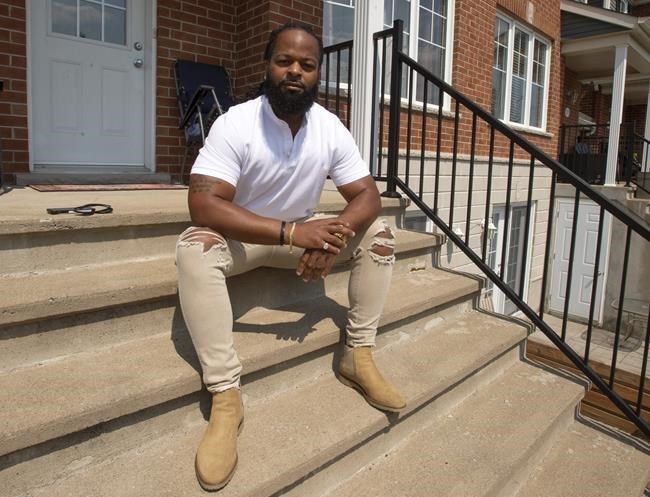MONTREAL — A suburb north of Montreal said Monday it was reviewing its police practices after a string of recent racial profiling complaints against its officers were upheld by a human rights body.
The Quebec Human Rights Commission most recently found that the City of Repentigny discriminated against Leslie Blot when officers stopped, handcuffed and ticketed him in 2017 when he was sitting in the passenger seat of a parked car blowing up balloons for his children.
Blot was a "victim of discrimination, under form of profiling, founded on the intersectionality of motives of race, colour and sex," said the decision last month.
The commission ruled the evidence supports sending the case to be heard by the province's human rights tribunal unless the city agrees to a settlement that includes paying Blot more than $38,000 and taking several actions to reduce profiling, including collecting race-based data on police stops.
Blot, who is Black, said it wasn't the first time he'd been stopped for no reason by Repentigny police. But he said this incident, which took place outside his home while he was doing nothing but blowing up balloons in his girlfriend's car, went too far.
"I'm at home and you come ask me for identification in front of my children? " he said in a phone interview Monday. "They stopped me, they handcuffed me, they ripped my phone from my hand when I decided to film the scene."
Blot said his brother's phone was also taken. A video of the arrest was erased but was later retrieved, he said.
Blot was eventually released and given four tickets. Two were for lack of insurance and registration papers, one was for refusing to provide identification and one was for insulting an officer. All were eventually dropped by the city.
The City of Repentigny did not comment directly on the decision, but said in a statement that it is developing an action plan and is committed to a process of "organizational transformation."
"Among other things, we met all of our police officers to find out their perceptions of what is happening on the ground and within the (police force) and organizations working in the territory in order to understand their concerns and integrate their ideas into our action plan," the city said, adding that it would announce a series of concrete measures over the course of the summer.
Neither Blot nor Fo Niemi of the Center for Research-Action on Race Relations has much confidence in the city's promises of change.
Niemi said Blot's case is the fourth time the rights commission has ruled against the city in recent years, and each previous time Repentigny has chosen to allow the file to proceed to the province's human rights tribunal rather than accepting the proposed settlement.
He said his organization is looking into nine other complaints from Black youth involving alleged profiling by Repentigny police.
"Words these days don't matter anymore, because words can be very hollow," Niemi said. "We need to see concrete actions, concrete results on the ground."
Blot, who has since moved to a different city, said Repentigny police would stop him on average once a month, usually for so-called routine verifications of his ID while driving.
"I find it pretty strange that it's only people who look like me (who get stopped)," he said.
He said racial profiling happens everywhere, including in Montreal, but Repentigny is at "another level." Like Niemi, he doubts there has been any change.
He said he's satisfied with the commission's decision but feels it's too early to declare victory. He expects the city refuse to compensate him and is preparing for a lengthy process before the case is heard before the tribunal.
This report by The Canadian Press was first published July 5, 2021.
Morgan Lowrie, The Canadian Press



